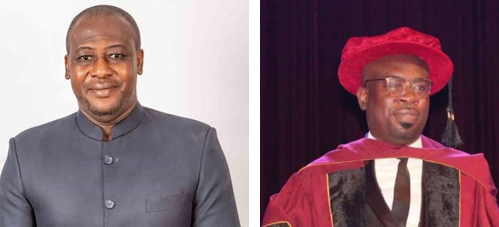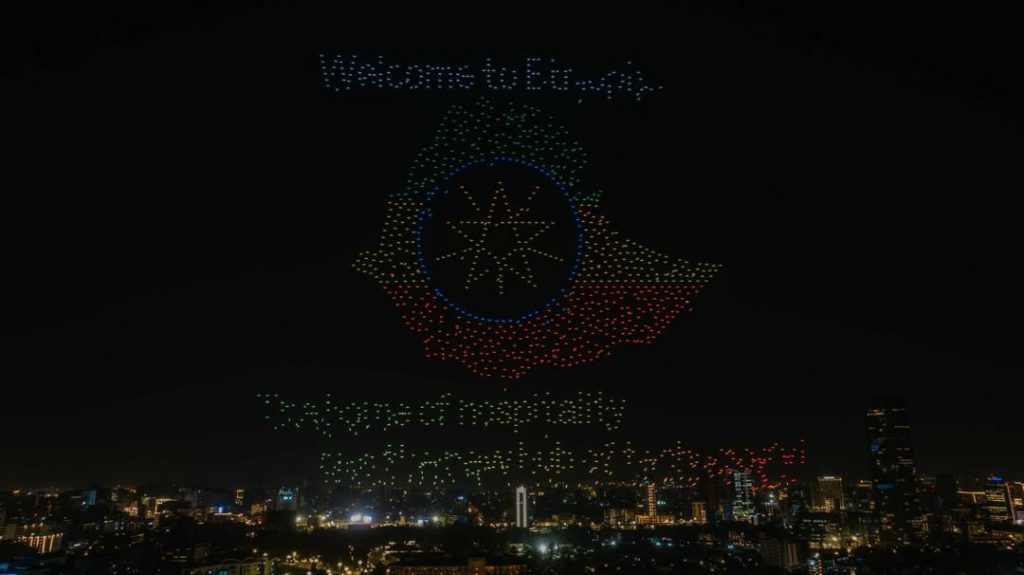Africa: The Future of Aid in Africa - Breaking the Binary of Dependency and Denial - allAfrica.com
What is often missing from these debates is a clear understanding of what aid represents.
The conversation around aid in Africa is not new. It has long featured prominently in broader debates on African liberation and development. Over time, three major arguments have shaped this discourse, each corresponding to different phases of Africa's developmental trajectory.
The first argument, widely held in Pan-African and academic circles, views aid as a mechanism of imperialism and neocolonial control. According to this perspective, aid serves as a tool for the continued subjugation and exploitation of Africa, with its ideological roots traceable to the transatlantic slave trade and colonial rule. In this view, civil society organisations, NGOs, and even governments involved in the aid ecosystem are perceived as enablers of global capitalism and imperialist structures. This argument is reinforced by historical evidence showing that the majority of aid originates from advanced capitalist nations, countries that have historically been complicit in colonialism, slavery, and neocolonial arrangements.
The second view sees aid as a structural element of the global political order, functioning not merely as charity but as a form of compensation for historical injustices. This perspective acknowledges that aid is inherently political, embedded in foreign policy, and often used to reinforce geopolitical alliances. From this angle, aid becomes a form of negotiated obligation between the Global North and South, tied to diplomacy, influence, and a lingering sense of moral responsibility.
The third position, which has gained traction in recent decades, particularly among proponents of neoliberalism, presents aid as both ineffective and harmful. This argument contends that aid fosters dependency, undermines local initiative, and entrenches corrupt governance. Dambisa Moyo's influential book, Dead Aid, is often cited as a definitive critique of this school of thought. According to this view, aid is not just insufficient, it is part of the problem.
A more recent strand of critique has emerged from within the development sector itself. This view highlights the racial and colonial dynamics of international aid agencies and calls for a decolonised, restructured aid architecture and governance. While rooted in radical analysis, this movement has gradually evolved into the more mainstream agenda of "localisation," a term now widely used by international agencies, albeit often stripped of its original intent. Unlike the first critique, this perspective comes from insiders, aid workers, policy professionals, and civil society leaders, who object to the power imbalances and top-down governance structures that persist within the global aid architecture.
My objective here is not to rehash old arguments but to reflect on the renewed debates around aid, especially in light of recent shifts such as President Trump's stop-work orders and the unprecedented cancellation of USAID projects globally. These actions sparked a fresh wave of introspection and debate, distinct from earlier, more polemical critiques that rejected aid altogether or blamed it for Africa's predicament.
While the frustration with Africa's slow progress is valid, and the disappointment with global systems understandable, many of today's aid-dismissive arguments lack nuance. They often reflect a poor grasp of the multifaceted role of aid or rely heavily on historical grievances and neo-nationalist sentiment. The risk is that in our quest for ideological clarity, we lose sight of the urgent and practical role aid continues to play.
Africa remains the poorest continent, home to more than 800 million people living in poverty. It is wracked by some of the world's most violent and protracted conflicts, from the fratricidal wars in the Congo and South Sudan, to the internecine crisis in Sudan and the turmoil in Somalia. Climate-induced disasters in the Sahel, East Africa, and West Africa further exacerbate food insecurity and displacement. These crises result in mass displacement, poverty, school dropouts, and the consequent dangerous migration journeys, and tragic losses of life, such as the frequent capsizing of boats carrying desperate families.
Although Africa has made relative progress on the Millennium Development Goals (MDGs) and is advancing the Sustainable Development Goals (SDGs), the results remain insufficient. Unlike China and India, countries that have lifted hundreds of millions out of poverty, Africa continues to record economic growth without corresponding improvements in living standards. In many places, growth statistics mask persistent poverty, unemployment, and deepening inequality. The continent still shoulders the highest global burden of out-of-school children, HIV/AIDS, malaria, maternal mortality, and malnutrition.
This paradox emerges at a time when other regions of the world are experiencing unprecedented economic growth and development, further deepening global inequality. It is, therefore, tempting and historically justifiable, to attribute Africa's challenges to the international political economy. Yet, the reality remains: these challenges persist and demand urgent, practical solutions. While the context is undoubtedly painful and complex, lamentation alone cannot deliver progress. What is needed is decisive and sustained action. Unfortunately, many African countries lack either the resources, the political will, or both, to respond effectively. Some critics contend that Africa's greatest failure lies in its own inability to take charge of its destiny.
What is often missing from these debates is a clear understanding of what aid represents. While some view it as irrelevant or even obstructive, such conclusions often stem from a mischaracterisation of aid. Aid is not a development strategy. It is not a substitute for government spending, nor can it replace the need for local economic productivity or robust tax systems. Aid is also not distributed evenly across countries or sectors, and it differs fundamentally from foreign direct investment or market-driven capital flows. Understanding these distinctions is critical to any serious conversation about Africa's development trajectory.
What it offers, at its best, is catalytic support: a means to respond to emergencies, address immediate human needs, and prevent humanitarian catastrophes. Aid enables individuals and communities to survive with dignity and, when properly managed, can help lay the foundation for self-sufficiency. Moreover, aid is deeply political, as it is part of economic diplomacy and global governance. Bilateral and multilateral aid flows are products of negotiation and strategic interest.
To say that "aid is not the solution to Africa's developmental crisis" is fair. But it is equally important to acknowledge that aid was never meant to be that solution. What is misguided is the notion that a continent experiencing an unprecedented convergence of humanitarian and development emergencies does not need aid. Aid remains essential to support citizen participation, stabilise fragile contexts, and protect vulnerable populations. It plays a critical role in mitigating conflict, enabling peace-building, and sustaining civil society organisations that work on human rights, public accountability, and governance.
The recent wave of aid cuts across Europe and the United States should therefore alarm us. These countries have made commitments, both unilateral and multilateral, in the form of humanitarian and development assistance. They have a responsibility to honour them. Aid is not mere charity; it is embedded in a structural relationship based on mutual obligation, however asymmetrical that relationship may be.

Sign up for free AllAfrica Newsletters
Get the latest in African news delivered straight to your inbox
Advocating for the continuation of aid is not a rejection of African self-sufficiency. It is a recognition that achieving self-sufficiency requires empowered citizens, and in today's reality, many of those citizens cannot survive without aid.
What is particularly troubling is the celebratory tone adopted by some African leaders in response to these aid cuts. Rather than viewing this as a crisis demanding responsible leadership and innovation, some leaders see it as an opportunity to weaken the civic space and silence dissent. Their approval is not grounded in concern for the poor or the development of alternative strategies; it is driven by authoritarian ambitions to consolidate power and eliminate scrutiny.
This changing dynamic presents both a crisis and an opportunity for Africa. It is time to demand a new aid architecture, one that is accountable, inclusive, and people-led. Donors must not dominate the agenda, but African governments must also rise to their responsibilities. A few countries have attempted to fill emerging aid gaps, but their efforts lack sustainability and long-term vision.
Perhaps this is the moment for African elites to reflect on their responsibilities, to prioritise peace, restrain political egos, and play constructive politics. The cycle of war, displacement, and environmental degradation must end. We must stop creating the very emergencies that demand humanitarian aid in the first place.
Ultimately, economic growth and development, not aid, must be the path forward. However, development takes time, and people in crisis cannot wait; they have already waited too long. Many fought for liberation from colonialism with the promise of development. Since independence, they have battled tyrants who replaced colonial rule, still chasing the dream of a better life. Aid and development are not mutually exclusive. They must work together, because while we strive for long-term solutions, we must not turn our backs on those in immediate need.
Hussaini Abdu is an International Development and humanitarian specialist based in Abuja, Nigeria.











